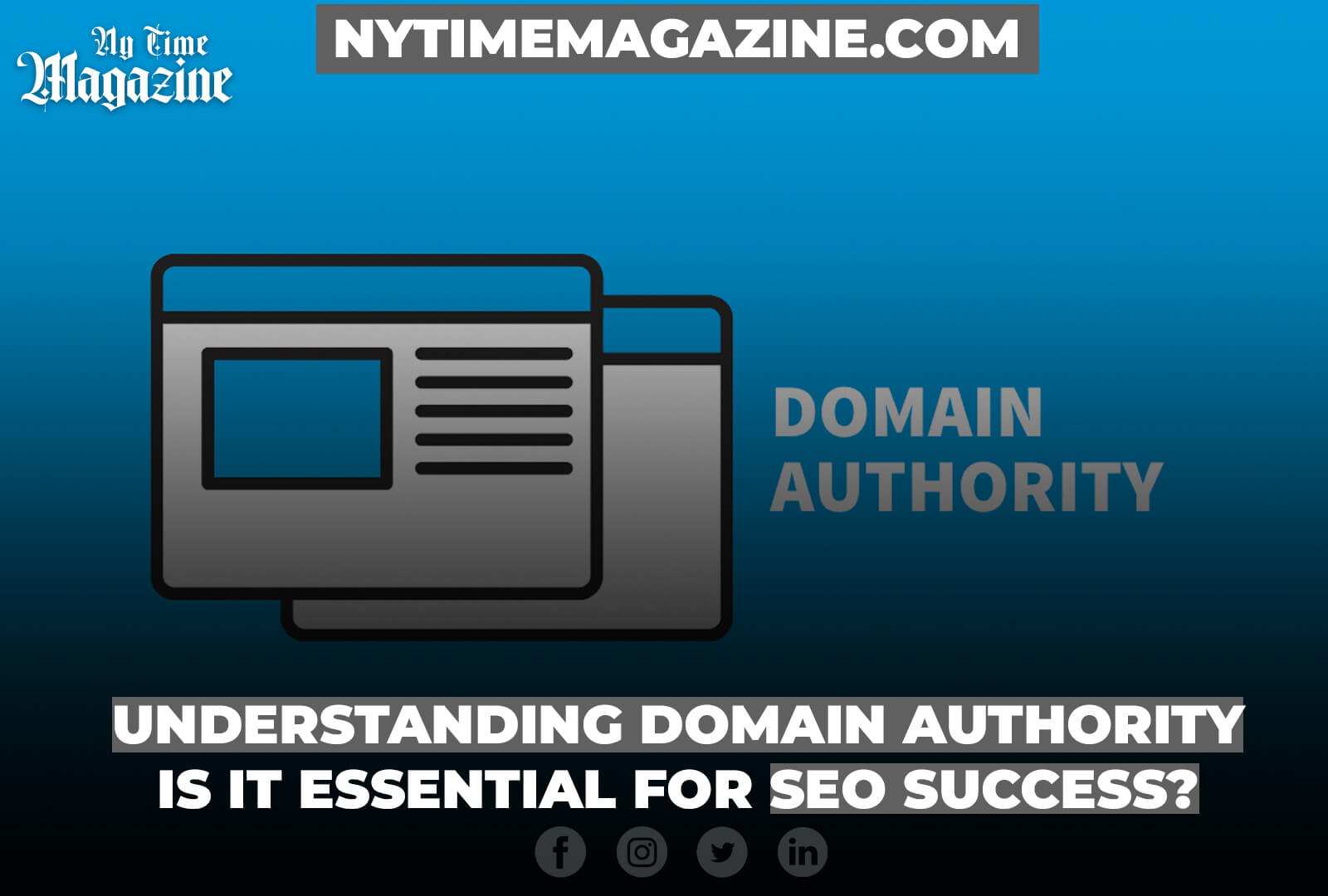In this article, we delve into the concept of Domain Authority, exploring its definition, relevance, and whether it truly holds the key to SEO success. Let’s break down the intricacies and shed light on whether investing efforts in enhancing Domain Authority is worth your while.
Contents
What Is Domain Authority?
First things first, let’s clarify what Domain Authority is. Coined by the Moz SEO tool, Domain Authority is a search engine ranking score developed by Moz. It predicts a website’s likelihood to rank on search engine results pages. The score ranges from 1 to 100. The higher your Domain Authority, the greater the chance of your website securing a top spot in search engine results.
However, it’s important to note that Domain Authority is a metric from Moz, not Google. Google does not use Domain Authority as a direct ranking factor. Instead, Google’s algorithms focus on the content and relevance of individual pages. So, the big question arises: Should you prioritize improving your Domain Authority?
The Truth About Domain Authority: Here’s the truth about Domain Authority: it’s not the be-all and end-all of SEO. While backlinks contribute significantly to Domain Authority, quality content and user satisfaction are paramount.
Creating meaningful content that resonates with your audience can naturally attract backlinks. You don’t need to stress over artificially inflating your Domain Authority by purchasing backlinks. Google is savvy enough to recognize manipulated backlink profiles, and it may penalize your site for such practices.
What Truly Matters: Building Your Brand
Instead of fixating on Domain Authority, concentrate on building your brand and engaging with your audience. Let your branding efforts do the talking. If you’re a startup, channel your energy into two main areas:
- Content and Engagement: Focus on creating valuable content that addresses your audience’s needs. Educate them about your products or services. Engage with them through social media, blogs, and informative resources.
- Trust and Reputation: Establish trust by encouraging happy customers to leave positive reviews on reputable platforms. Positive online reviews can enhance your brand’s reputation and, consequently, your online presence.
When your focus is on providing real value, relevant content, and building trust, your brand naturally gains recognition. People talk about your brand, share your content, and recommend your services. These actions generate organic backlinks and, in turn, boost your Domain Authority.
In Conclusion:
In the realm of SEO, while Domain Authority has its place, it shouldn’t be your sole focus. Concentrate on what truly matters: your audience, your brand, and the value you provide. By doing so, you not only enhance your online presence but also establish a lasting, meaningful connection with your audience. So, while Domain Authority isn’t insignificant, it’s certainly not the magic wand for SEO success. Focus on the bigger picture, and your online presence will naturally flourish.
Frequently Asked Questions
1. What is the significance of SEO for my website, and how can it improve my online visibility?
SEO, or Search Engine Optimization, is crucial for your website as it enhances your online visibility and helps you rank higher on search engine results pages. By optimizing your website’s content and structure, you make it easier for search engines to understand and index your site, increasing the chances of attracting organic traffic.
2. How can I create compelling and shareable content for my blog or website?
Crafting engaging content involves understanding your audience’s needs, utilizing impactful storytelling, and providing valuable insights. By conducting thorough research, understanding your target audience, and addressing their pain points, you can create content that resonates and encourages social sharing.
3. What role does social media play in driving traffic to my website?
Social media platforms serve as powerful tools to promote your website and attract a wider audience. By creating shareable content, engaging with your followers, and utilizing appropriate hashtags, you can increase your website’s visibility and drive traffic from social media platforms to your site.
4. How can I improve my website’s user experience to keep visitors engaged?
Enhancing user experience involves optimizing website speed, ensuring mobile responsiveness, and creating an intuitive navigation system. Additionally, providing high-quality, relevant content and interactive elements can significantly improve user engagement and encourage visitors to explore your site further.
5. What are the best practices for building a responsive and visually appealing website?
Building a responsive website involves utilizing mobile-friendly design elements, optimizing images and videos, and employing a clean, user-friendly layout. It’s essential to choose a visually appealing color scheme, easy-to-read fonts, and high-quality visuals to create an attractive and professional-looking website.
6. How can I effectively use email marketing to promote my products or services?
Email marketing can be a potent tool for promoting products or services. Building a targeted email list, crafting compelling email copy, and incorporating visually appealing designs are key steps. Personalization, segmenting your audience, and analyzing email performance data are also crucial for successful email marketing campaigns.
7. What are the essential steps for securing my website and customer data?
Securing your website involves implementing SSL certificates, regularly updating software and plugins, using strong and unique passwords, and conducting security audits. Additionally, educating your team and customers about phishing scams and best online security practices can further enhance your website’s security.
8. How can I effectively track my website’s performance and user behavior?
Tracking your website’s performance requires utilizing tools like Google Analytics. By setting up goals, tracking user behavior, monitoring bounce rates, and analyzing conversion data, you can gain valuable insights into your audience’s preferences and tailor your website content and marketing strategies accordingly.
9. What are the latest trends in digital marketing, and how can I leverage them for my business?
Staying updated on the latest digital marketing trends, such as video marketing, voice search optimization, and interactive content, can give you a competitive edge. By incorporating these trends into your marketing strategies, you can engage your audience more effectively and stay ahead of the competition.
10. How can I monetize my website or blog and generate passive income?
Monetizing your website involves various strategies such as affiliate marketing, sponsored content, selling digital products or services, and displaying online ads. Choosing the right monetization methods based on your audience and niche, and consistently providing valuable content, can help you generate passive income over time.



